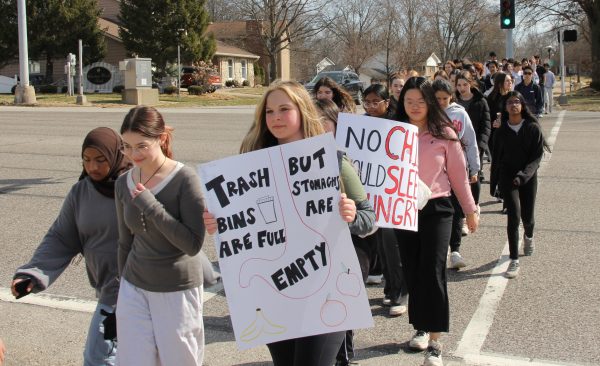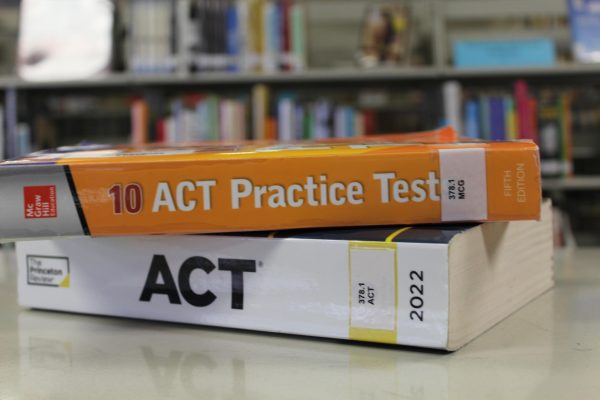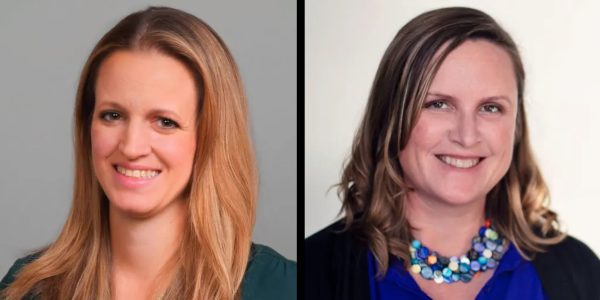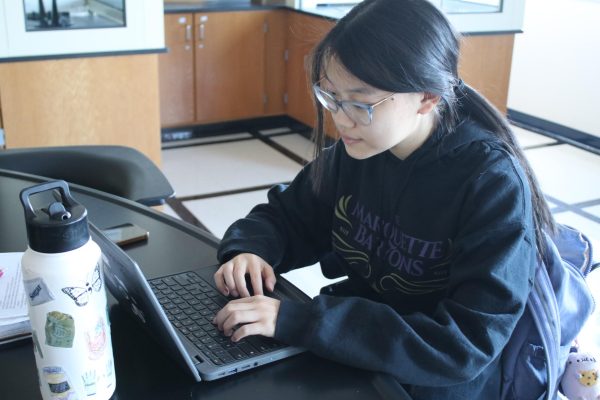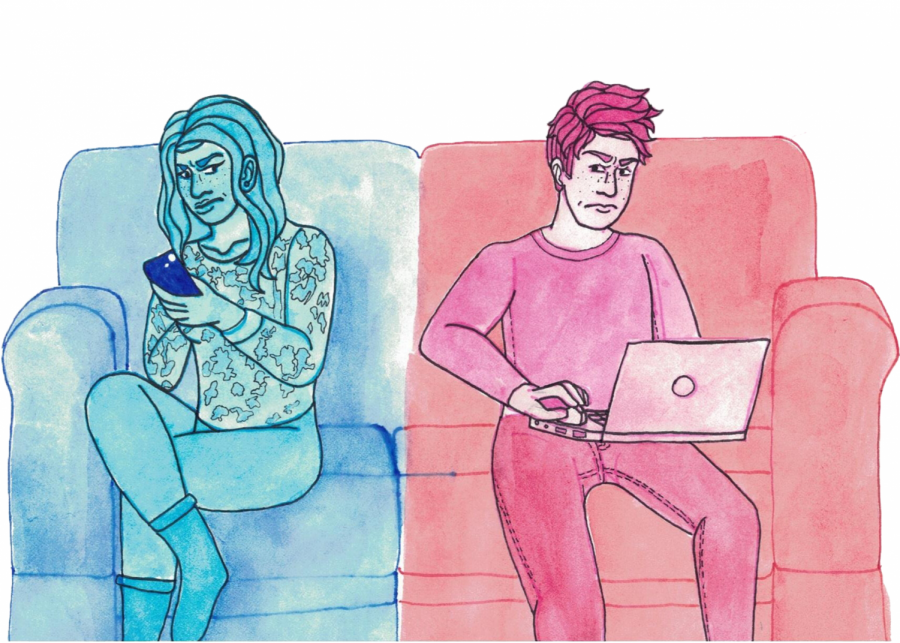MHS Students and Staff Reflect on Election Season
Media by Emilia Foley
Will Bratton, junior, said in the face of current societal and political division, Americans need to accept and respect each other’s opinions. “We need to go back to our roots and solve things in a civil way, rather than with the aggression that is going on right now.”
Social divisiveness and political polarization following the presidential election has caused the community to reflect on how issues regarding the state of the nation have affected society and their lives.
The Electoral College certified the election results, confirming President-elect Joe Biden’s win; however, President Donald Trump has not formally conceded.
Trump continues to make claims of voter fraud and in the 2020 election while the U.S. Justice Department has not found evidence of widespread voter fraud.
Andrew Corrow, junior, is a member of Politics Club and has a conservative ideology, and he said the nation has lost its sense of unity.
Corrow said political conflict and divisive rhetoric regarding general election integrity could pose a threat to the nation. Corrow is frustrated with the uncertainty of a peaceful presidential transition of power.
“If what was happening in America now was happening in any other country, we would say ‘they need to get their act together’ and ‘that goes against the values of democracy’,” Corrow said. “But it is happening here, and people have difficulty accepting that.”
He said Republicans and Democrats have developed political hostility between and within their parties—to the point where they are at risk of fracture. If the parties see each other as an existential threat, Corrow said, they will hurt national dialogue and society’s ability to tolerate differing opinions.
Although Corrow disagrees with Biden on multiple topics, he is willing to give him a chance in order to promote unity.
He said it will be difficult for the president-elect to gain bipartisan support during the age of echo-chambers reinforced by social media where it is easy to rely solely on politically biased commentators and outlets.
Vishwasri Aleti, senior, said her family in India followed the presidential election and attempted to sway her mother’s political beliefs, contradicting her and her sister’s liberal views. Aleti and her uncles conflicted on the legitimacy of her political judgement due to her age and their connection and relationship have not been the same since.
Aleti said students’ political posts following the election caused her to distance herself from them. She said she doesn’t want to associate with ideologies that challenge her core values and those who don’t seek to understand others.
“My acquaintances aren’t hard to unfollow since we aren’t all in school, so a lot has changed in how I’ve been handling myself with them,” Aleti said. “Social media is the way people are trying to get their voices heard, so it is different than how I’d have to control myself in person or in class.”
The Media and Divisiveness in Government
Katherine Bauman, social studies teacher, said severed relationships due to political beliefs are indicative of a larger issue of political divisions in the community, local and federal government.
“When you have misinformation shared from the administration, it creates a culture of confusion,” Bauman said. “People don’t know where to turn to for the right answer, or maybe don’t want to look in another area for information because it is hard to unlearn something or challenge that world view.”
Bauman said she is disappointed in Republican-elected officials who sided with Trump over his legal proceedings and claims of election fraud because of a fear of reprisal or absence of his support. She said Republicanism is transforming into a new political ideology: Trumpism.
This is characterized by an “America first” and “us versus them” mentality, Bauman said. Although past Republican presidents served as mediators between foreign countries, she said this diplomacy no longer exists because the nation left many agreements.
The next administration will have to bring the country back to a state of democracy, she said, and she is unsure if society will be receptive to Biden’s message of compromise, unity and negotiation across the aisle.
She said Democrats did not see a complete repudiation of Trump, the presidential election was not a blue-wave and the party did not gain a vast number of Congressional seats.
“That is a clear message to the next administration that they are going to have to work with Republicans and we are going to have to find middle grounds between progressive and conservative policies,” Bauman said.
Will Bratton, junior, said as a Republican-leaning moderate, he navigates unprecedented political polarization on social media with an underlying fear of public backlash and judgement of his character.
He is unsure if his generation can reunite society because of the difficulty to avoid being emotionally affected by biased statements and misinformation from media influencers and publications.
Bratton said he believes claims that there was voter fraud in the presidential election, but, after weeks of deliberation and governmental investigations, he does not foresee an overturn.
“It’s almost a good thing he is challenging the election because this could prevent more voter fraud from happening in the future in the event it is game-changing,” Bratton said.
Bratton said President-elect Joe Biden announcing cabinet and administration nominations is strategic, yet unfair as it may divert attention from Trump’s fraud claims, but it can create more societal tension because Biden’s win was only recently confirmed by the Electoral College.
Social Issues in a Divided Nation
Lynn Richardson, social studies teacher, said Americans think they have come far with addressing racism, for example since the civil rights movement, but the nation’s eyes and wounds have been opened.
Richardson said great people not only acknowledge, but seek to improve their faults, and the nation cannot be complacent with unaddressed societal issues during the transition into the next administration.
“We love to say ‘we are so awesome, we have all these freedoms, we treat people equally,’ but do we really?” Richardson said. “We’ve touted ourselves as the best country in the world, but we’ve got a lot of black eyes, and we try to cover them up with makeup instead of really trying to heal them.”
Sam Hall, senior, said she is in fear of threats against herself as a part of the LBGTQ+ community and for her family as Black Americans in a predominantly white neighborhood because of racial divisiveness following the election.
“I won’t let my sister walk the dog anymore because it gives me too much stress like what if she doesn’t come back?” Hall said. “It is so overwhelming, the fear and stress of being a part of this nation that does not want you, doesn’t believe that your life matters.”
She said her family and some friends have differing political beliefs than her, which can cause tension, but she makes a point to have difficult discussions with them.
Hall said individuals who choose to only love those who share similar beliefs, lives and demographics are not loving but simply tolerating others. It will be a challenge to achieve unity, she said, but citizens need to meet others with grace, engage in conversation and listen to others’ stories.
“I am not saying we should tolerate racism, but kindness goes a long way,” Hall said. “A lot of people have preconceived notions when you say ‘Black Lives Matter’ and ‘we shouldn’t be wearing masks’, but we have to stop.”
She said Biden and Harris will need to face accountability in order to strengthen democracy and ensure their actions are in favor of all Americans, especially considering their controversial political careers concerning racial issues and the criminal justice system.
Hall is curious to see what the next administration will do in a broken society and divided political landscape.
“I have faith in humanity and love, and I know things will get better even if it is not going to happen anytime soon, during or after their presidency,” Hall said.
Your donation will support the student journalists of Marquette High School. Your contribution will allow us to purchase equipment and cover our annual website hosting costs. You may become a PATRON by making a donation at one of these levels: White/$30, Green/$50, Blue/$100. Patron names will be published in the print newsmagazine, on the website and once per quarter on our social media accounts.
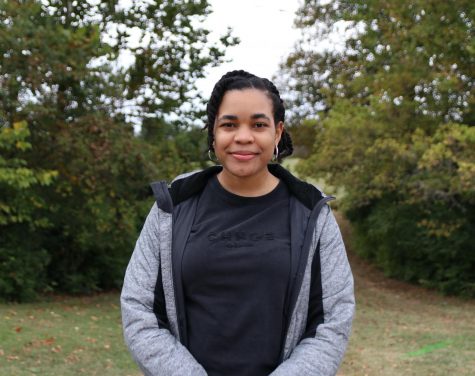
Lauren Pickett, senior, is the In-Depth Editor for the MHS Messenger. This is her second full year on staff. Also, Lauren participates in two other activities:...

Emilia Foley, junior, is an Illustrator for the Marquette Messenger. This will be her first full year on staff. Outside of news production, Emmie is an...



